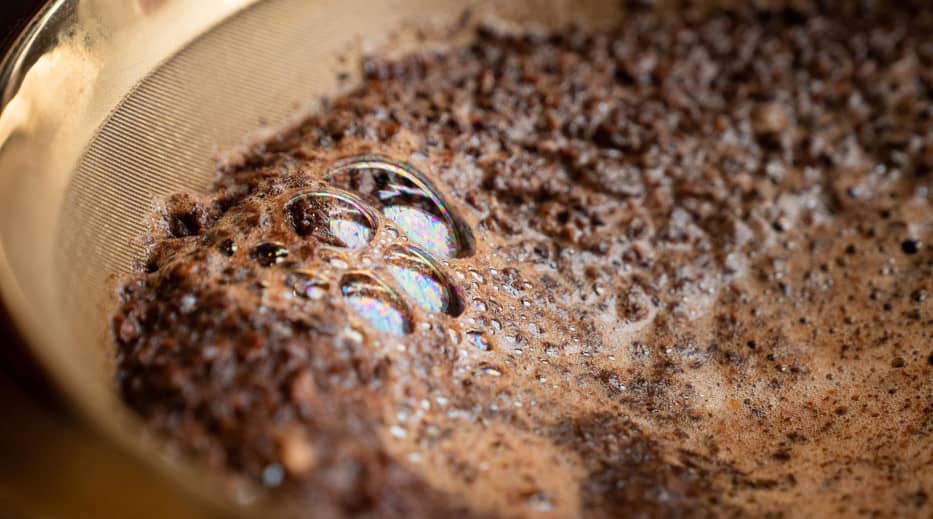Putting Coffee Grounds Down the Sink: Yes or No? - Considerations to Keep in Mind
Putting Coffee Grounds Down the Sink: Yes or No? - Considerations to Keep in Mind
Blog Article
What are your opinions with regards to What are the consequences of putting coffee grounds?

If you're an enthusiastic coffee drinker, you might be questioning the very best means to throw away your coffee grounds. While it might seem convenient to wash them down the sink, this technique can cause several concerns for both your plumbing and the environment. In this write-up, we'll check out whether it's secure to put coffee grounds down the sink and go over alternate disposal methods to take into consideration.
Alternatives to Disposing of Coffee Grounds
Garbage Disposal
If you do not have a composting setup, another alternative is to merely toss your coffee grounds in the garbage. Make sure to seal them in a compostable bag or container to prevent smells and leak. While this technique doesn't offer the same environmental benefits as composting, it's a safe and hassle-free method to throw away coffee grounds.
Composting
One eco-friendly choice for getting rid of coffee grounds is to compost them. Coffee grounds are rich in nitrogen, making them an exceptional enhancement to compost heap or containers. As they decompose, they include nutrients to the soil, enhancing its fertility and texture.
Threats of Putting Coffee Grounds Down the Sink
Plumbing Issues
Among the primary concerns with throwing away coffee grounds down the sink is the risk of obstructing your pipes. Coffee grounds do not liquify in water and can accumulate in time, forming a thick sludge that can obstruct drains pipes and lead to expensive plumbing repair work.
Environmental Impact
Past the possible damage to your plumbing, placing coffee premises down the sink can also hurt the atmosphere. When washed into the sewage system, coffee premises can add to clogs in drain lines and treatment facilities. Additionally, the high focus of raw material in coffee grounds can diminish oxygen levels in waterways, adversely impacting water life.
Tips for Proper Disposal
Normal Maintenance
Regardless of exactly how you pick to get rid of your coffee premises, it's vital to keep your plumbing frequently. Schedule routine drain cleanings to remove any build-up and ensure that your pipes continue to be clear and free-flowing.
Make Use Of a Sink Strainer
To prevent coffee premises from entering your sink's drainpipe to begin with, think about making use of a sink strainer. These cost-effective devices catch strong particles, including coffee grounds, avoiding them from creating blockages.
Verdict
While it might be tempting to wash coffee premises down the sink for convenience, doing so can have major effects for your plumbing and the setting. Instead, think about composting your coffee premises or dealing with them in the trash. By embracing accountable disposal techniques, you can appreciate your coffee guilt-free while decreasing your ecological impact.
Coffee Grounds Down The Drain: Are They OK?
Can Coffee Grounds Go Down the Sink?
You may be thinking, “But I pour them down the sink drain every day and I’ve never had a clogged drain!” You see, coffee grounds come from coffee beans, which are virtually rock hard by the time they’re ground and brewed. You certainly wouldn’t want to grind up the pit from a peach, apricot, or nectarine that is about just as hard because they wouldn’t break down like other foods, and it’s the same with coffee beans!
If you usually grind coffee beans in the garbage disposal because it seems the cleanest and convenient, we don’t fault you for that. And anyone who has ever had to clean up the trash with spilled coffee grounds after a dog got into it would understand the rationale. Unfortunately, coffee grounds do not break down in water, so instead of grinding up and washing away as normal foods do in a garbage disposal, they clump together and as time goes by, the grounds can form a clump and pack the drain until it develops a clog.
What to Do With Coffee Grounds
So, what do you do with coffee grounds if you can't put them down the drain? You could of course just throw them in the garbage, but we encourage you to give these practical uses for them a try!
Since coffee grounds contain key minerals for plant growth, you can use them to fertilize your garden. Coffee grounds not only fertilize gardens because they are mineral-rich, but they are also great at absorbing contaminants in the soil, particularly heavy metals. Coffee grounds are said to attract worms, which help gardens flourish. You can use coffee grounds as fertilizer by sprinkling them around your plants. You can compost your coffee grounds and use them at a later time. Coffee grounds are great insect repellents when you place them in bowls or sprinkle them around the areas you want to repel insects. To remove fleas from your dog or cat, simply shampoo your pet then rub coffee grounds throughout their fur. Rinse them off and dry as usual. Like baking soda, used coffee grounds can eliminate odors. You can place them in a bowl in the fridge and let them do the work! Mix coffee grounds with coconut oil for a wonderful face or body scrub, or to reduce the appearance of cellulite. https://www.wintershomeservices.com/blog/2019/august/coffee-grounds-down-the-drain-are-they-ok-/

Do you like reading about Can You Put Coffee Grounds in the Sink Garbage Disposal?? Put feedback down below. We will be interested to see your views about this write up. We are looking forward to see you back again in the near future. Those who enjoyed reading our post please don't forget to pass it around. I truly appreciate reading our article about Is it safe to dispose of coffee grounds down the sink?.
Visit Website Report this page